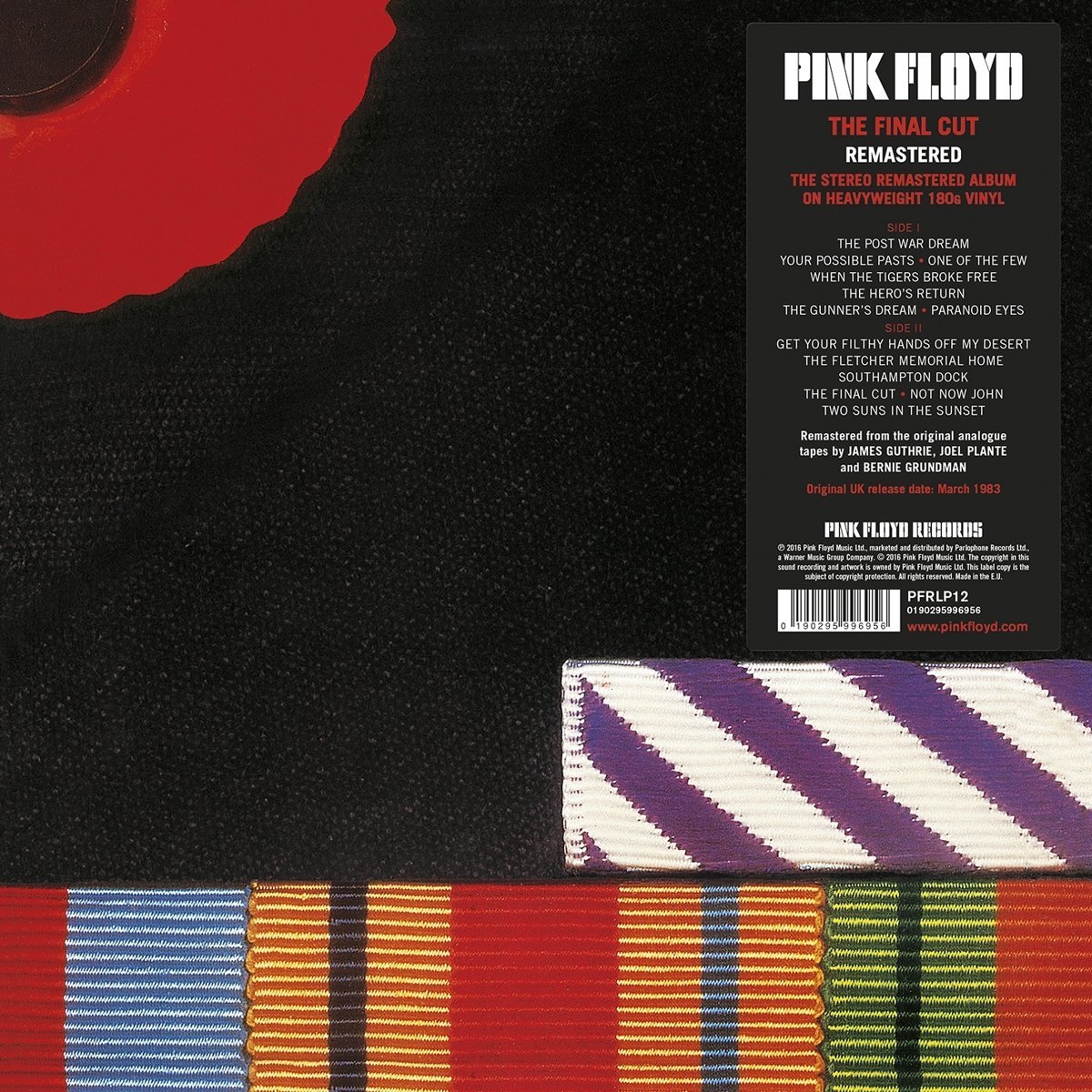

It was, indeed, the ‘final cut’. The Wall had taken Pink Floyd to the top of the world, but The Final Cut, another No 1 album, saw their future about to go up – or rather down – in flames. Keyboard player Rick Wright left the band in 1980 amid claims that he had been forced to quit by Roger Waters – who, in addition to his bass and vocal duties, had become the primary songwriter. Meanwhile, the already shaky relationship between Waters and guitarist/vocalist Dave Gilmour was deteriorating. They had never been the best of friends, but their musical visions for the Floyd had been conflicting sharply since Dark Side of the Moon. For a long time, they had been able to fight their way to a compromise, but the gulf was widening. It would soon be impassable.ĭrummer Nick Mason was caught, unhappily, in the middle of the hostilities, telling Uncut last year that “I’ve always been well known for my fence-sitting.”īy the time of The Wall, Waters was largely in control. And The Final Cut, released in the spring of 1983, was almost entirely his own work, a full-scale anti-war protest, with Gilmour and Mason turning out simply to play their designated parts – and subsequently dumping Waters.
REVERB LP PINK FLOYD FINAL CUT MOVIE
They followed this with a movie version of The Wall. Released in 1982, it was directed by Alan Parker with Bob Geldof cast in the role of Pink. There seemed no limit to what the Floyd could achieve.īut even as The Wall was being packed into racks in record shops across the world in its week of release, the Floyd empire was beginning to crumble. Less than four years later, it was all over bar the shouting – and there was a lot of shouting – for the four-piece that had so dominated the previous decade. The band took the album out on tour in 1980 with one of the most memorable, ambitious and expensive stage shows in rock history. Dramatising the central story of Pink, a rock star who had become alienated from his fans, the theatrics involved the building, and subsequent demolition, of a wall, 30-feet high, between the Floyd and their audience. The first single, “Another Brick in the Wall (Part 2)”, topped the British and US charts for five and four weeks respectively, bringing home audiences a surprising and unusually serious Christmas bestseller.


They called it The Final Cut, and that’s what it was for Pink Floyd – The last album they would make with Roger Waters. For the prog-rock Fab Four, with band relations deteriorating fast, this signalled the end: Rick Wright had already departed and Dave Gilmour and Nick Mason were reduced to supporting roles as their creative figurehead wrestled with his anti-war opus. Twenty years on, talking exclusively to Uncut, Waters recalls the Fall of the Floyd Empire.Īt the end of 1979, when Pink Floyd released The Wall, they were at the height of their fame and glory. A double album, it smashed into the Top 3 in the UK, going on to sell more than eight million copies in America, where it remained at No 1 for 15 weeks.


 0 kommentar(er)
0 kommentar(er)
